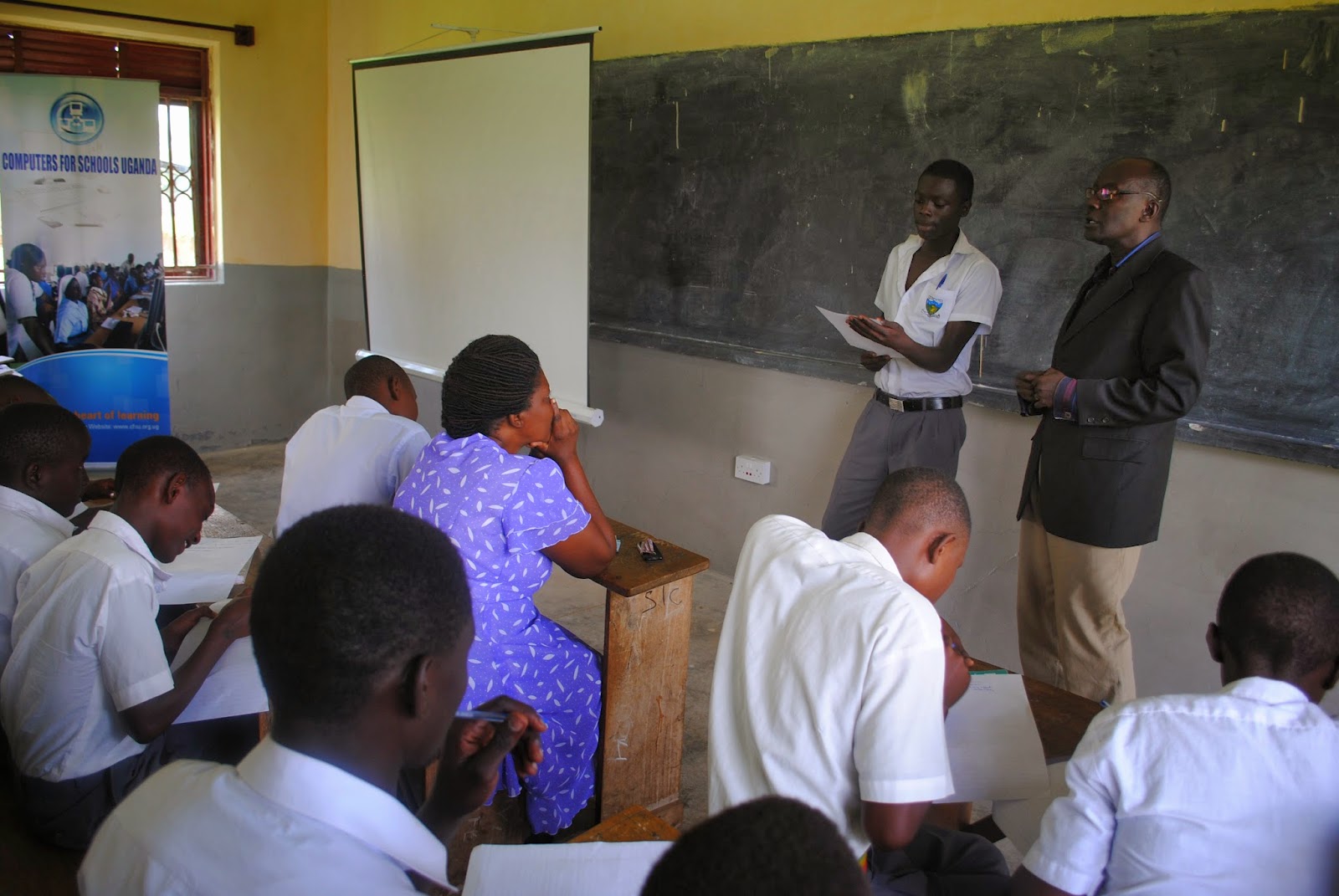As I go round schools
both primary and secondary schools the need that comes loud and clear from the
teacher’s lips is lack of text books and to a greater extent, they are right
for text books are the main source of teaching materials.
Are you aware that pupil’s
can be a source of materials? Not easy to believe but its true!
I happened to visit
Canon Apollo Demo School and was lucky to find a P.6 teacher conducting a library,
lesson. Wow! That was wonderful for I had never attended such a lesson in my
entire life.
I looked around the library;
there were not many books that really struck my eyes. Many looked like
donations that had no relation to the Ugandan curriculum.
As you very well know,
most primary school pupils cover their books with news papers. These are the
very materials that the teacher used for his lesson!
He asked pupils to unwrap
their English language exercise books. The few exceptions who had not wrapped
their exercise books with newspapers were allowed to unwrap a non – language
Exercisebook.
Instruction one was
“class look at your papers what can you see?”Hands went up! Pictures had caught
almost every one’s eye. So, they went on mentioning what they could see. Some
saw people, others bicycles, cars, houses, trees and so on and so forth.
Seeing their attention
was mainly on pictures, he changed their attention to words .So instruction two
was “Look at the words and only pick out words whose meaning you do not know?” They
responded by picking the words pronouncing them the way they could and writing
them in their exercise books. One pupil made the class burst with laughter when
he read the word curriculum as “KULIKULAMU”
The teacher explained
the meaning of these difficult words and asked pupils to construct sentences
using the same words. He gave them freedom to either construct sentences using
the newly learnt words or to describe one of the pictures of their choice.
To my astonishment,
three quarters of the class took to describing the pictures. Some even drew and
traced them in their exercise books which he collected at the end of the
lesson.
I noted the pupil who
had picked the curriculum word had written a composition about the Ugandan
curriculum sighting out its pros and cons!
My assessment of the lesson
was that pupils had one: - enjoyed themselves and had been given chance to
discover and be creative.
Two: - that “free-lance
lessons” made the teacher cover wider rangeof topics within a very short time.
This reminds me of the
2012 joint teacher- pupil instructional material development exhibition that
amazed many parents and stake holders of the district.
Story writing,calendars,
clocks, art pieces and so on and so forth were some of the materials made by
both pupils and their teachers.
This was a non-text
book exhibition with a clear message that pupils with diligent and passionate teachers
produced better work. We can say that non text book material can be made and
used if the teachers are creative and passionate about what they are teaching
and secondly, pupils can do a lot under the supervision of their teachers. A competent
teacher can use anything to conduct a well balanced lesson rich enough to make
pupils improve on their literacy and numeracy levels.







